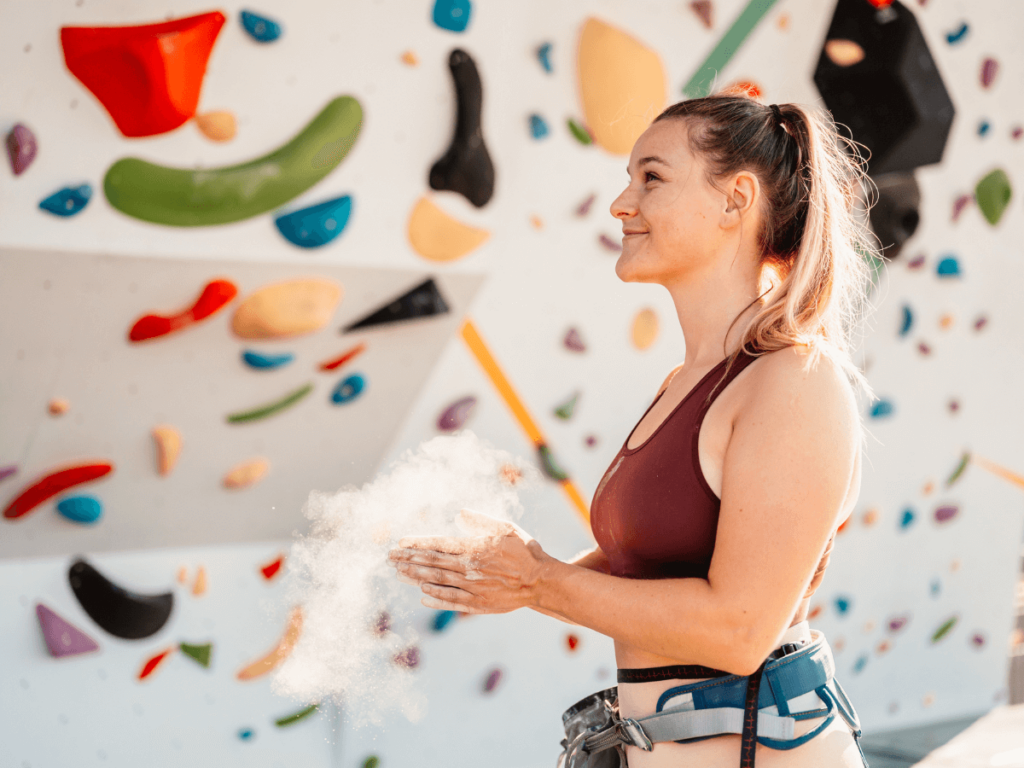Climbing is highly physical. You pull onto the wall, and every part of your body engages, from your fingers to your toes, to keep the body tension needed to fly up the wall. But, as with any sport, there is a psychological component. One psychological component for any climber is overcoming the fear of falling or heights. But in this article, we are going to dive deep and highlight the psychological challenges that arise as an individual advances into the competitive ranks of rock climbing. Aside from asking their body to perform at a high level, they are asking their mind to keep up with the demands of competitive climbing. But what are those psychological or invisible challenges a competitive rock climber faces? Beyond their pumped forearms and scraped knees, what are they fighting to wrangle inside their head and succeed at their sport?
We’re here to dive into those questions and present a look inside the heads of competitive rock climbers. If you’ve ever dabbled into the competitive realm or have been in it for years, maybe one or two of these will resonate with you.
Psychological Challenges in Competitive Rock Climbing

1. Composure and Staying in Your Lane.
While climbers can train with others leading up to the comp, on an actual day, you, yourself, and your brain have to make it through the day. Seeing or hearing other people succeed when you’re struggling on a climb can quickly send a climber into a downward spiral if they can’t remain composed. The sooner the negative emotions are allowed to take over, the easier it becomes to lose focus or get psyched out.
Additionally, climbers are all different, and they climb the same. Focusing on another climber’s successes or failures instead of focusing on your climbing will knock you off your game.
2. Calm the nerves, but get amped.
Building off of composure is the challenge of balancing all the emotions surrounding a climbing competition. On the one hand, nerves are inevitable, but on the other (even if buried deep) is excitement and adrenaline. Too much of either is usually a recipe for disaster. Letting the nerves run wild kills confidence and can throw a climber off their game. But, being too excited can lead to a climber overlooking problems, rushing, and falling off climbs because of silly, preventable mistakes.
The key to overcoming this psychological challenge is to find what works for you to calm your breathing, heart rate, and mind. Once you feel calm, slowly let the competition’s energy increase your excitement and adrenaline while on the wall.
3. Keeping Perspective
Rock climbing competitions attract competitive people who are prone to placing high expectations on themselves. It’s hard to keep perspective and look at the bigger picture, especially on an off day. If a climber feels they can perform better than they are, and the frustration builds, they’re likely to become very self-critical of their strengths, weaknesses, and overall training.
If you find yourself in that position, remembering to step back and look at the bigger picture is super important. Every competitor has off days, so many factors go into performing well. Even if your training has been fantastic, sleep, life events, and systemic fatigue are massive variables that can impact performance. Learning to reframe your mindset to look at competitions as chances to win or learn versus win or lose will benefit you more than picking apart mistakes if a comp day doesn’t go to plan.
While there are undoubtedly psychological challenges unique to every climber, these three are expected of humans and often amplified in those brave enough to step onto a competition floor. Competing is challenging but incredibly rewarding, so kudos to those reading this who have ever done a competition. And, if you haven’t, hopefully, this provided some insight into the less visible demands of competitive sports. But don’t let it discourage you from trying to compete if you want to do that! These psychological challenges lessen with practice and intention, and the rewards of competing can be worth the challenge.
Let us know if there’s anything else you would like to know below or if there are any questions or comments about psychological challenges in competitive rock climbing!

